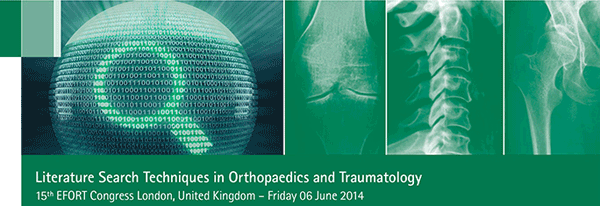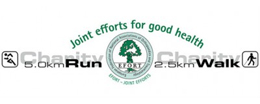Bring your laptop to London, and keep it “on”
Medical professionals use internet to seek reliable information in relation to a specific question. However, this is often time consuming if not done properly. Loosing time is not a destiny and searching techniques are not talents but something to be learnt. Effective use of different electronic databases can simplify the process and save you time and effort. Don’t you want to listen and practice these techniques?
If so join us for this interesting session!
More information: Session programme leaflet (PDF document, 2 pages, 282kb)
Literature Search Techniques in Orthopaedics and Traumatology
Friday 06 June 2014 – 09:00 – 10:30 – Room: Quick Comm
Pubmed & Google
Dr. Fatih Kucukdurmaz
Reseach Scholar – Rothman Institute, Thomas Jefferson University, Philadelphia, USA
Assistant Professor – Bezmialem Vakif University, Istanbul, Turkey
Pubmed
- Importance of signing in / my Pubmed
- Managing filters
- Advanced search
Limits - Managing personal collections
- Filtering your search
- Bookshelf
Google & Google Scholar
- Tips and tricks of using the google search engine effectively
- How to find the best evidence quickly
- How to identify most relevant articles for a comprehensive review
- Boolean logic
- Punctuation marks that make search easier
- Site and file type filtering
Cochrane & Other Database Search Engines
Mr. Mohamed Sukeik, MD MRCSEd PGA
Specialist Registrar in Trauma & Orthopaedics – The Royal London Hospital, London, United Kingdom
- The Cochrane Database: Systematic reviews of randomised controlled trials
- EMBASE: Drugs and pharmacology
- CINAHL: Nursing and allied health disciplines
- AMED: Allied and complementary medicine
- BNI: British nursing index
- HEALTH BUSINESS ELITE: Health care administration and health care institution management
- HMIC: The Health Management Information Consortium database
- PsycINFO: Psychology and allied fields
More information: Session programme leaflet (PDF document, 2 pages, 282kb)




